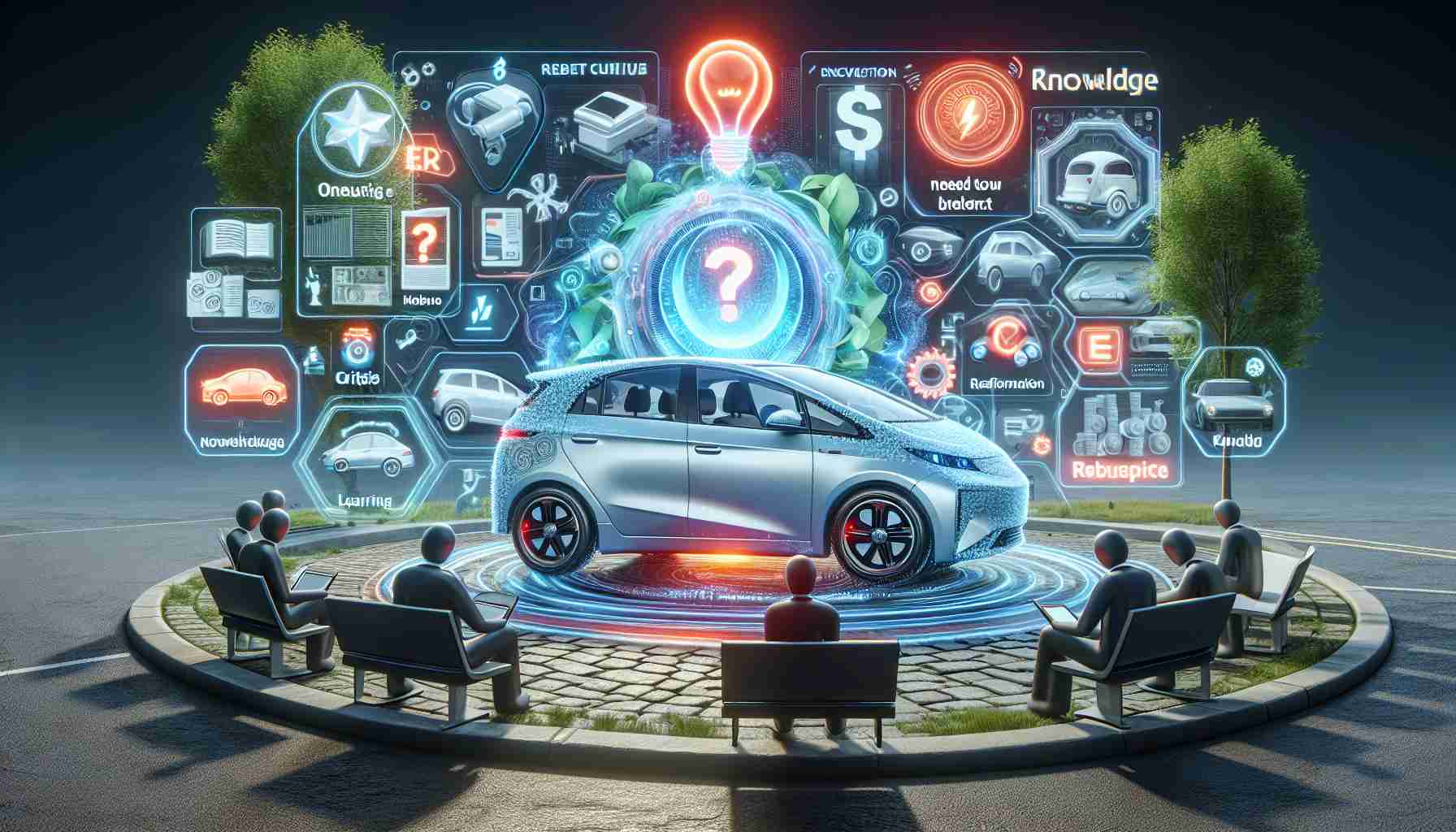- The end of substantial government rebates is creating anxiety among potential EV buyers.
- Previous incentive programs significantly boosted EV sales, but their absence has led to concerns about future demand.
- The Canadian market faces additional challenges with tariffs on Chinese EVs, limiting affordable options for consumers.
- Experts predict a potential dip in EV sales as consumers adjust to the new landscape without incentives.
- Industry leaders emphasize the ongoing necessity for incentives to meet government mandates for zero-emission vehicle sales.
- Potential buyers are encouraged to consider making their purchases sooner rather than later to take advantage of remaining incentives.
As families seek greener transportation, the end of significant government rebates for electric vehicles (EVs) has sparked a frenzy in the auto market. Shanna Bernier, a Sherbrooke, Quebec native, jumped at the chance to save nearly $10,000 on her new Toyota Rav4 hybrid, but she quickly learned she was among the last to snag such sizable incentives.
The federal Incentives for Zero-Emission Vehicles program has cut its funds short, leaving many would-be buyers anxious. Once offering up to $5,000 off, this incentive was a game-changer for families. Meanwhile, provincial programs like Quebec’s $7,000 rebate have also dried up, creating uncertainty in a once-thriving market.
Experts warn that this shift might lead to a significant dip in EV sales. While some predict a slowdown, others remain hopeful that the market will stabilize over time. Previous rebate programs in places like New Zealand saw a surge, but once incentives were scrapped, sales plummeted. In Canada, the 100% tariff on Chinese EVs complicates matters further, limiting affordable options.
As manufacturers adjust prices in response to these changes, consumers are left wondering if they’ll be able to afford the cars they want. Despite the uncertainty, industry leaders stress the ongoing need for consumer incentives. With government mandates pushing for 20% of new vehicle sales to be zero-emissions by 2026, the stakes are high.
Takeaway: The landscape of EV purchases is changing dramatically—if you’re considering an electric car, now may be the time to act before incentives vanish completely!
Is the Future of Electric Vehicles at Risk? Explore the Latest Insights!
The electric vehicle (EV) market is experiencing significant turbulence as governmental incentives dwindle. With consumers increasingly seeking eco-friendly transportation options, the eradication of generous rebates—like those provided by Canada’s federal and provincial programs—has plunged many potential buyers into anxiety. Let’s delve deeper into the latest information regarding this evolving landscape.
Market Analysis and Trends
1. Price Adjustments: Following the cuts to rebates, car manufacturers are likely to adjust their pricing structures. Consumers can expect a shift in how EVs are marketed and priced, with a potential increase in costs for buyers without the supporting rebates.
2. Sales Predictions: Experts are divided over the future of EV sales. Some predict a sharp decline similar to trends observed in New Zealand, while others believe that the market will stabilize as new models are introduced that align with consumer demands and preferences.
3. Diverse Market Innovations: Auto manufacturers are ramping up innovation in the EV sector, developing new models that promise better range, lower costs, and enhanced features like advanced safety technologies and smart connectivity.
Key Use Cases
– Urban Commuting: Electric vehicles are increasingly favored for urban commuting due to their efficiency in stop-and-go traffic and lower operational costs.
– Family Transportation: Families are gravitating towards hybrids and EVs like the Toyota Rav4 hybrid for their combination of space, comfort, and sustainability.
Limitations and Security Aspects
– Affordability: With the halting of rebates, the primary barrier for many consumers remains affordability. The potential rise in prices without incentives may deter a significant segment of the market.
– Cybersecurity Risks: As EVs become integrated with more advanced technology, concerns over data privacy and security have escalated. Manufacturers must prioritize cybersecurity to protect consumers against potential hacks.
Frequently Asked Questions
1. What are the latest incentives for electric vehicles in Canada?
Currently, the federal Incentives for Zero-Emission Vehicles program has seen significant funding cuts, removing the previous opportunity for $5,000 off. Provincial rebates like those in Quebec have also dried up, making it essential for buyers to stay informed about any emerging programs.
2. How are electric vehicle manufacturers reacting to the lack of incentives?
Manufacturers may respond by revising pricing strategies, focusing on cost-effective models, and accelerating the development of advanced technologies to attract buyers who are more price-sensitive during these challenging economic times.
3. What should consumers consider before purchasing an electric vehicle now?
Prospective buyers should consider the current market landscape, their budget constraints, potential resale value, and the specific features they need in their next vehicle. Additionally, being aware of the changing EV landscape can provide insight into whether to make a purchase now or wait for potential future incentives.
Suggested Related Links
CBC News
The Globe and Mail
AutoTrader
In light of these evolving dynamics in the EV market, it’s crucial for consumers to stay informed and ready to make decisions that align with both their needs and the uncertain future of electric vehicles.













